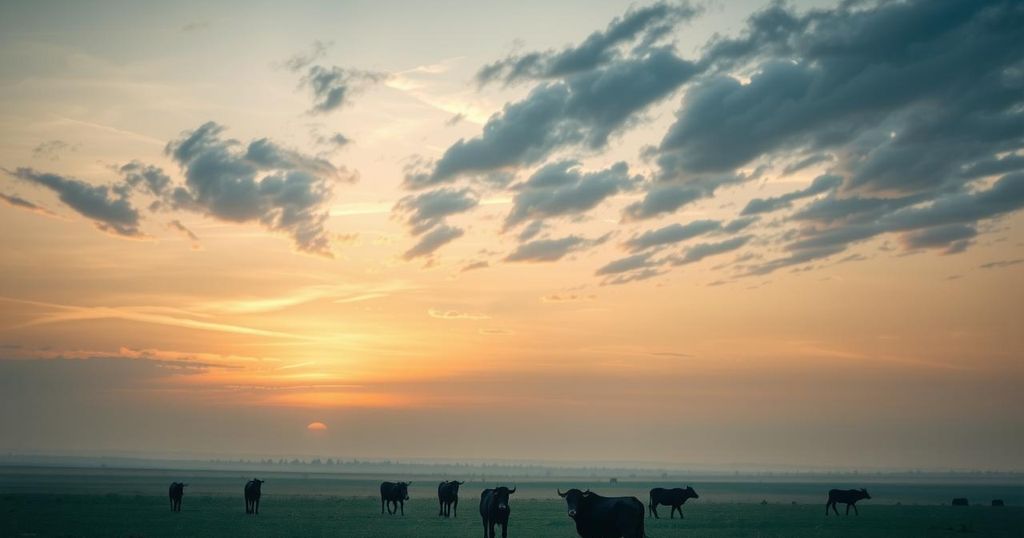Violent Attack on Cattle Camps in South Sudan Claims 35 Lives

An attack on cattle camps in South Sudan led to 35 fatalities and 46 injuries, focusing on escalating violence linked to ethnic tensions and resource competition. Community leader Mayom Ateny confirmed the January 31 assault, which also resulted in the theft of 11,000 cattle. UNMISS chief Nicholas Haysom condemned the violence, highlighting the urgent need for restraint among beef-supplying communities.
A recent attack on cattle camps in southeastern South Sudan has resulted in the deaths of at least 35 individuals and injuries to 46 others, as reported by community leader Mayom Ateny. The assault on the Dinka Bor cattle camps occurred on January 31, leading to the theft of 11,000 cattle amid increasing violence due to competition for resources. This event highlights the ongoing strife fueled by ethnic tensions in a country still recovering from prolonged conflict.
Cattle raiding has become a critical factor in violence between ethnic groups in South Sudan, where cattle symbolize wealth and social standing. The practice often escalates tensions among communities, particularly as cattle are used in bride prices, affecting familial and social relationships. Notably, past civil war (2013-2018) has left the nation armed and vulnerable to such conflicts despite a relative peace among major factions.
Nicholas Haysom, head of the United Nations Mission in South Sudan (UNMISS), condemned the violence in a statement urging both cattle keepers and farming communities to refrain from further aggression. He stated, “Such attacks and counter-attacks must stop,” emphasizing the need for restraint among all parties involved. The circumstances underline the fragility of stability in a region plagued by historical grievances over resources and communal relations.
South Sudan has a tumultuous history of conflict that has led to widespread instability, especially in regions where ethnic groups compete for resources such as cattle, which are culturally significant. Following the civil war, lingering tensions have contributed to sporadic violence as different factions and communities vie for control over local resources. The United Nations continues to monitor these situations, emphasizing the necessity of conflict resolution and community restraint as the nation seeks to stabilize after years of turmoil.
The recent cattle camp attack underscores the persistent issue of resource-related violence in South Sudan, exacerbated by historical ethnic rivalries and the legacy of war. While the government and international organizations like the UN call for peace, the ongoing cattle raiding incidents reveal the challenges ahead for achieving lasting stability. Moving forward, dialogue and community engagement will be essential in mitigating such conflicts and promoting coexistence among different groups.
Original Source: www.newarab.com








